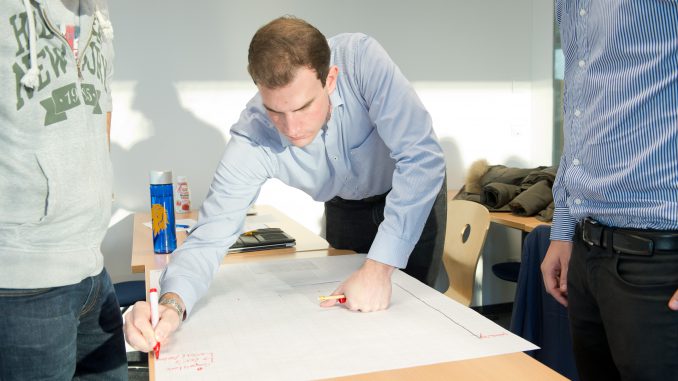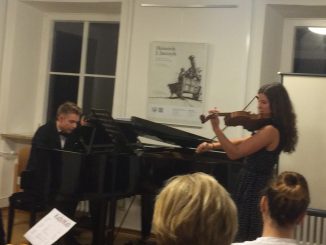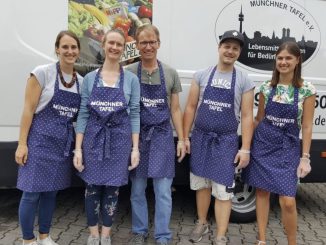
Children and senior citizens united on a paper hunt in Grünwald, a soccer world cup with minor-aged refugees and a whole school organizing a footrace for a good cause: These are the results of social project work as it has been taught and studied in the second and third semesters of the Bachelor program at Munich Business School for more than 10 years. This combination of learning and civic involvement is called Service Learning. And each year, we are amazed and thrilled by the results of our social projects. The students learn only necessary basics during lectures, but then it’s all about setting off to work autonomously: Do it yourselves!
Requirements allow much headroom for the students’ own creativity: The project must be a social venture and should address at least one of the aspects of integration, education and internationality. It requires cooperation with a project partner from the civil society and each project team must conclude it by a comprehensive project report and a presentation, including also the evaluation of the methods applied by the project management. The project teams are on their own in finding project partners and, in coordination with them, outlining implementing and evaluating the project concept in a report and a presentation. The number of project partners was further increased with the projects concluded in fall 2014:
- Welcome party and soccer cup for refugees in cooperation with the Multicultural Youth Center in Munich’s Westend;
- Donation race with the school of the Schools‘ Association Munich, revenues to be used for ARCHE Munich;
- Photo exhibition by and in favor of the homeless in the Franciscan monastery, St. Anna, in Munich;
- Junior Cup – soccer tournament for children and adolescents together with CVJM Munich-Schwabing;
- Generational encounter – a paper hunt with the children of the day care center LIVE and residents of a senior citizens‘ home in Grünwald;
- Rally for donations in kind for the second-hand store of Diakonia, a large Christian social services organization;
- Cooking event delivering a three-course menu for the parents of seriously ill children at the Ronald McDonald House of the German Heart Centre Munich;
- Party at P1 in favor of an orphanage for children and adolescents run by the St. John’s association in Otavi, Namibia
Of course, there were/are many challenges: The need for a plan B or even C was revealed impressively, when, for example, members of the project team had to be replaced at short notice before the scheduled cooking event because they had moved to another study location and the team needed reinforcement: After all, dinner had to be prepared for 50 people, which meant that the team had to conjure up a three-course menu with all the trimmings. (It worked out excellently, as pictures of proud cooks and happy guests are evidencing). Or a host cancels an event one week before the scheduled concert – despite a valid contract. Quite often, the project concepts are overthrown: Although it had been planned to increase the event’s attractiveness by the presence of some celebrities, all that actually took place was a happy get-together with young refugees and an encounter of different worlds enriching both sides – and glamor became quite unimportant.
Difficulties in working as a team, all the more if it’s done autonomously, is hardly avoidable: Yet another occasion to gain priceless experience, for example, about how to hold up group discipline and motivation when cultural differences and contrary opinions threaten to rip the team apart (so far, all groups managed to stay together). Practical time management feels totally different than theory, when quick action is needed because a project partner cancels cooperation, submission date of the project report is rapidly approaching and no feedback has come from the organizers, despite several attempts to contact them – and all this is happening while other numerous study-related obligations also demand attention.
Ultimately, a change of perspective is the core concern of this combination of university teaching and civic involvement, as it is strikingly shown by the photo exhibition in the Franciscan St. Anna monastery that was created by homeless people. For months, the members of the project team had visited the guests of the monastery’s soup kitchen, all of them living in socially precarious circumstances or even homeless. In dialogue with them, the project team tried to find out more about the needs of the homeless and about ways to help them. The project presentation gave a remarkable impression about the personal experience gained from the exchange and a striking insight into this very different world. Eventually, some of the visitors of the soup kitchen took up the challenge and turned in the pictures they had shot with the single-use camera that had been given to them. From these pictures, the project group put together an exhibition on the monastery’s premises and the donations collected during the event were used for donations in kind, for example for sleeping bags for the homeless. It was a considerable success of a small and very ambitious project. In the near future, the photo exhibition will be presented at Munich Business School – exemplary for all students’ projects. We thank the students in the name of MBS for their commitment, which went far beyond the mere fulfillment of a duty, and we are excited about the upcoming projects!




